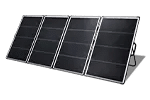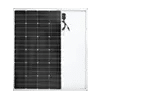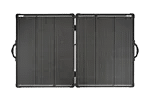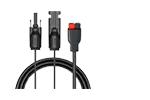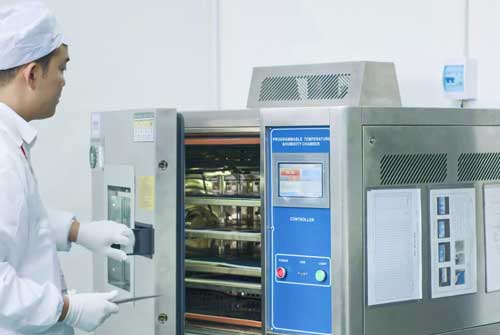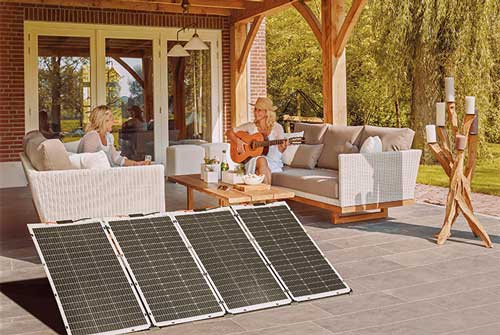Residential solar panels are devices that use sunlight to convert electricity, which can help you save money on your electricity bill, reduce your carbon footprint, and even earn extra income. But how do you choose the right residential solar panels? This article will give you some basic knowledge and considerations to help you make an informed decision.
How residential solar panels work
Solar panels consist of a number of solar cells, each of which can produce about 355 W of electricity under bright light.1 Generally speaking, a typical solar system contains about 10 solar panels and can produce direct current (DC) electricity. Since household appliances require alternating current (AC), the solar system also requires an inverter to convert the DC to AC so that you can use solar energy to power your home.
Advantages of residential solar panels
There are many benefits to using solar panels, such as
Lower your electricity bill: Using solar energy can reduce the amount of electricity you buy from the grid, thus saving you money on your electricity bill. Depending on your electricity consumption habits and location, you may be able to recoup your investment in 11 to 21 years.
Reduce your carbon footprint: Using solar energy can reduce your dependence on fossil fuels and therefore reduce your carbon footprint. Depending on your region and the solar system you use, you may be able to save between 1 and 3 tons of CO2 per year.
Earn extra income: If you generate more solar energy than you need, you can earn extra income by selling the excess electricity to the grid. This requires you to participate in a program called the Smart Export Guarantee (SEG), which allows you to sell your solar energy at market rates.
Choosing residential solar panels
There are several factors to consider when choosing the right solar panels:
The size and orientation of your roof: Generally, you need at least 10 square meters of roof space to install a 4kWp (kilowatt peak) solar system.1 In addition, it is best for your roof to face south or east-west so that it receives more sunlight.
The slope and shading of your roof: In general, it is best to have a roof slope between 15 and 40 degrees to allow solar panels to absorb sunlight more effectively.1 In addition, you want to avoid trees, buildings, or other objects on your roof to block the sunlight.
Your home’s location and hours of sunlight: Different regions and seasons receive different intensities and lengths of sunlight, which can affect the amount of electricity produced by your home’s solar system. Generally speaking, the south of the UK gets more sunshine than the north.1 In addition, there is more sunshine in the summer than in the winter.
How much electricity your home uses and when: Different homes have different electricity consumption and hours, which can affect the amount your solar system saves or earns. In general, if your home uses more electricity during the day, such as when someone is working or studying at home, then it is more cost-effective to use solar energy.1 In addition, if your home has a battery storage system, then you can store the excess solar energy generated during the day and use it at night or during power outages.
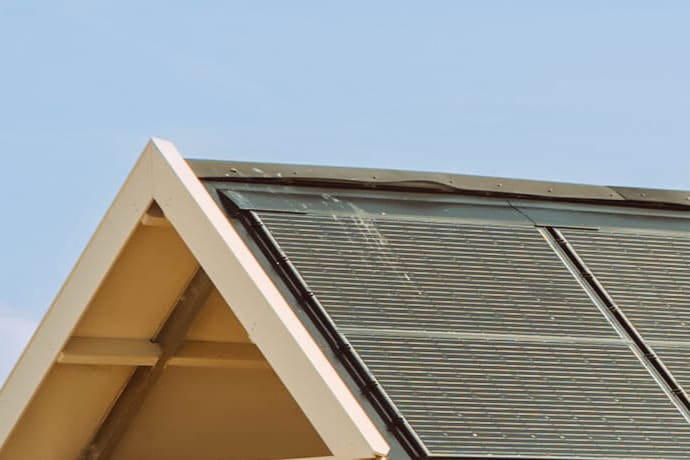
Installation and maintenance of solar panels
Installing and maintaining solar panels requires several steps:
Find a reliable and professional supplier: Installing solar panels is a long-term and expensive investment, so you need to find a reputable and experienced supplier to provide the service for you. It is recommended that you request quotes from at least three suppliers and check if they have the relevant qualifications and certifications1.
Apply for necessary permits and subsidies: You may need to apply for some permits and subsidies to install solar panels, such as planning permission, building regulations approval, feed-in tariff (FIT) scheme or SEG scheme, etc.1 It is recommended that you It is recommended that you consult the supplier or local government agency before installation.
Arrange the installation time and method: Installation of solar panels usually takes about one day and requires professional staff and equipment from the supplier.1 It is recommended that you communicate with the supplier about the installation time and method before installation and follow the instructions they give.
Monitor and maintain system performance: After installation, you will need to monitor and maintain system performance to ensure that it is functioning properly and achieving the desired results.1 It is recommended that you regularly check that the solar panels are clean, intact, and unobstructed and that you use specialized software or equipment to monitor system output.
In summary
Using residential solar panels is an environmentally friendly and economical way to provide clean energy for your home. However, before choosing and installing solar panels, you need to consider many factors and find a reliable and professional supplier to provide services for you. I hope this article can help those who want to use solar panels.



